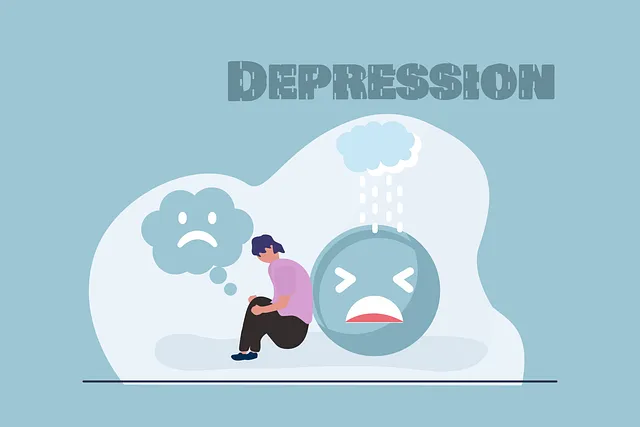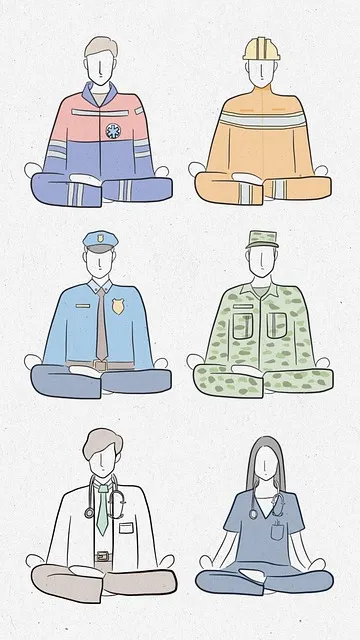Arvada Kaiser Permanente's holistic behavioral health services leverage the RFM model to enhance resilience in treating anxiety and depression. Through personalized interventions, open dialogue, and mindfulness practices, they build self-esteem and reduce mental illness stigma. Their popular podcast series and continuous improvement approach based on patient feedback solidify their reputation as a leading provider, strategically implementing resilience exercises and burnout prevention for healthcare providers. By measuring success through participant progress, Arvada Kaiser Permanente ensures their programs effectively address diverse challenges and cater to individual needs.
Resilience is a vital asset in behavioral health, and RFM (Recovery, Flexibility, and Mastery) exercises offer a powerful framework to build it. This article explores how organizations like Arvada Kaiser Permanente Behavioral Health Services have successfully integrated RFM into their programs. We’ll delve into effective strategies for implementing resilience training, the significance of reviews and feedback, and methods to measure the impact of these initiatives. Discover how these practices enhance patient outcomes and foster resilient communities, with a focus on real-world insights from Arvada Kaiser Permanente behavioral health services reviews.
- Understanding RFM: A Key to Resilience Building in Behavioral Health
- Arvada Kaiser Permanente Behavioral Health Services: A Case Study
- Implementing Resilience Exercises: Effective Strategies and Techniques
- The Role of Reviews and Feedback in Enhancing RFM Programs
- Measuring Success: Evaluating the Impact of Resilience Building Initiatives
Understanding RFM: A Key to Resilience Building in Behavioral Health

Resilience is a cornerstone of behavioral health and well-being, enabling individuals to navigate life’s challenges with strength and adaptability. This is where the Role-Function-Moment (RFM) model emerges as a powerful tool within the realm of Arvada Kaiser Permanente behavioral health services reviews. Understanding RFM involves recognizing three key components: role, function, and moment. By assessing these aspects, mental health professionals can tailor interventions to foster resilience in individuals struggling with various conditions, from anxiety to depression.
The RFM framework encourages compassion cultivation practices, emphasizing the individual’s role as an active participant in their healing journey. It invites exploration of one’s functions—behaviors and thoughts—in different moments, helping to identify patterns that contribute or hinder resilience. This approach not only complements traditional therapy but also strengthens mental illness stigma reduction efforts by empowering individuals with skills to manage their emotional well-being. Effective communication strategies, a vital aspect of RFM implementation, facilitate open dialogue, encouraging clients to share their unique experiences and perspectives in a supportive environment.
Arvada Kaiser Permanente Behavioral Health Services: A Case Study

Arvada Kaiser Permanente Behavioral Health Services stands as a beacon of hope and healing for many in the community. This case study highlights their innovative approach to mental health care, focusing on resilience-building exercises and client feedback, which has garnered positive arvada kaiser permanente behavioral health services reviews. Their program emphasizes self-esteem improvement through tailored interventions, ensuring each individual’s unique needs are addressed. By integrating various therapeutic techniques, the center fosters a safe space for clients to navigate their emotional journeys.
The mental wellness podcast series production initiated by Arvada Kaiser Permanente showcases their commitment to staying relevant and accessible. These podcasts delve into diverse topics, promoting cultural sensitivity in mental healthcare practice and providing valuable insights for both professionals and individuals seeking support. The center’s dedication to continuous improvement has undoubtedly contributed to its reputation as a leading provider of behavioral health services.
Implementing Resilience Exercises: Effective Strategies and Techniques

Implementing resilience exercises is a strategic approach to enhance the coping mechanisms and overall well-being of individuals, especially within the context of healthcare settings like Arvada Kaiser Permanente behavioral health services reviews highlight. These exercises are designed to foster mental fortitude, enabling people to navigate life’s challenges with greater ease. One effective strategy involves incorporating mindfulness practices such as meditation and deep breathing into daily routines. These techniques not only reduce stress but also promote a sense of calm and emotional balance, which is essential for building resilience.
Additionally, group therapy sessions that emphasize cultural sensitivity in mental healthcare practice can create a supportive environment. Encouraging open discussions and sharing experiences allows individuals to learn from one another, fostering a sense of community and collective resilience. Burnout prevention strategies for healthcare providers are also integral to this process. By implementing self-care practices and creating a culture that values and prioritizes mental health, healthcare professionals can better support their patients’ resilience building efforts, ultimately contributing to improved patient outcomes and satisfaction.
The Role of Reviews and Feedback in Enhancing RFM Programs

Reviews and feedback play a pivotal role in enhancing RFM (Reliance, Flexibility, and Mastery) programs within behavioral health services. At Arvada Kaiser Permanente, for instance, regular evaluations allow for continuous improvement of their behavioral health services reviews, ensuring they meet the diverse needs of their patients. This involves soliciting patient feedback, examining treatment outcomes, and gauging provider satisfaction.
By integrating these insights, Arvada Kaiser Permanente can tailor their RFM exercises to address specific challenges. For example, cultural sensitivity in mental healthcare practice can be reinforced through feedback-driven workshops, where providers reflect on their interactions with diverse patient populations. Similarly, burnout prevention strategies for healthcare providers can emerge from identifying common stressors and implementing targeted interventions based on the feedback received.
Measuring Success: Evaluating the Impact of Resilience Building Initiatives

Measuring success is a vital component when implementing resilience-building exercises and initiatives, especially within behavioral health services like those offered by Arvada Kaiser Permanente. Evaluating the impact allows for understanding whether these programs are effectively fostering mental wellness and reducing the stigma associated with mental illness. By assessing participant progress, service providers can gauge improvements in areas such as coping mechanisms, stress management, and overall positive thinking.
Arvada Kaiser Permanente’s behavioral health services reviews play a crucial role in this evaluation process. These reviews provide valuable insights into the effectiveness of resilience-building programs, helping to identify what works best for different populations. Through continuous assessment and feedback, mental illness stigma reduction efforts can be refined, ensuring that initiatives are tailored to meet the unique needs of individuals seeking support for their mental wellness journeys.
Implementing resilience-focused exercises, as demonstrated by Arvada Kaiser Permanente Behavioral Health Services, can significantly enhance mental well-being. By understanding the RFM (Resilience, Flexibility, and Mastery) framework and leveraging strategies outlined in this article, behavioral health professionals can develop effective programs that foster resilience. Regular reviews and feedback mechanisms are vital to refining these initiatives, ensuring they meet the unique needs of individuals seeking support. Through comprehensive evaluation methods, the impact of resilience-building exercises can be accurately measured, allowing for continuous improvement and better outcomes in behavioral healthcare.






